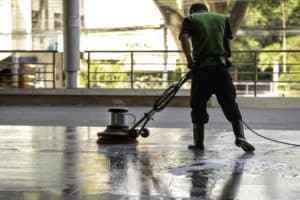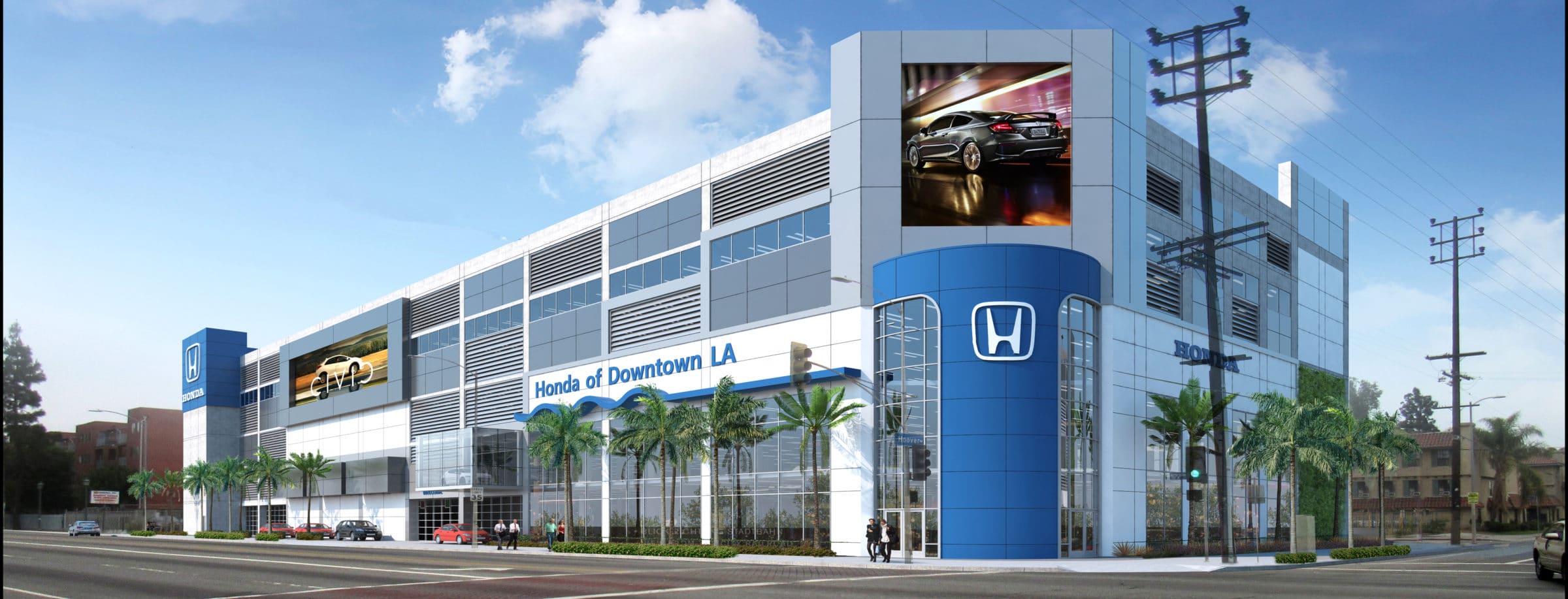How a Honda Store Nobody Wanted Led to a Big Jackpot
Honda of Downtown Los Angeles was the dealership nobody seemed to want a decade ago The dilapidated store was in bankruptcy, with its windows boarded up. But last summer, the dealership would deliver a big payday for three business partners who had the patience and vision to bring it back to life. The store had been shuttered for nearly two years when Joe Shuster, who managed a Honda dealership in New York, and two East Coast partners each ponied up $1 million to buy the dealership’s assets in fall 2011.
Before that, the dealership had averaged only about 30 vehicle sales a month. It looked bad on paper. To reopen it, the partners could only negotiate a short-term lease.
The trio of partners — Shuster, Ted Bessen and Sean Wolfington — built the business back up from virtually nothing. They gave the store a face-lift and made use of online tools and digital marketing to capitalize on its name and ranking in online searches. It was turning a profit in the first year.
They eventually opted to relocate the store from its tired, leased building near the Los Angeles Convention Center. And after scouring L.A.’s pricey real estate market for years, they settled on a site about 3 miles away in a thriving area of development near the University of Southern California campus. The partners invested in a new $38 million dealership, spanning more than 200,000 square feet over two blocks and six floors.
And then came the payday. Last summer the trio bittersweetly sold the dealership for $80 million.
“While a lot of people probably saw nothing but risk here, we saw enormous opportunity because of the brand, the market, and the fact that we had the technology to reach and acquire those customers online,” Wolfington told Automotive News.
Added Shuster: “Initially, it was a scary situation. It was a closed point. Nobody really wanted the point in California, which really made us nervous.”
But they saw good bones — after all, it was the Honda brand in California, where Honda is a key player, and it was in the large and diverse L.A. market.

The hard part
The partners started from scratch, with no sales and just a dozen or so service department employees from the previous management who had continued to provide service work under bankruptcy court direction despite the store being out of business.
“About two and a half years in, we realized we had something really good,” Shuster said. “We had a diamond in the rough, if you will, and we knew that we had to secure a home for our store.
But constructing the large facility would be the hang-up in what one broker says was the longest and riskiest transaction he has ever worked on.
“I’ve been doing this 27 years,” said Bill Scrivner of Pinnacle Mergers & Acquisitions in Frisco, Texas, who advised the trio in the sale. “It’s the first time I’ve ever had a construction project in the middle of a deal.”
Scrivner’s firm in 2016 introduced Shuster to Brandon Steven, a dealer in Wichita, Kan., who had his sights on growing out West. And after a lunch meeting at the former Montage Beverly Hills hotel, Shuster and Steven agreed to a handshake deal, Scrivner said. Part of the terms included Shuster handling construction of the dealership and moving into the new digs before Steven would buy the store.
“And you could understand that,” Shuster said. “There’s a lot of moving parts when you’re building a huge facility.”
The project was rife with construction delays, challenges from the city regarding special permitting and zoning, plus two closing postponements because of coronavirus restrictions, Scrivner and the partners recall.
Steven, who owns several dealerships in Kansas and Missouri through Brandon Steven Motors, said he had been looking for a West Coast store for about a year. He had reviewed dozens of properties and franchises before he was shown the new Honda Downtown L.A. site. He was immediately sold.
“Honda in California is obviously gold,” he said.
Steven admits he was optimistic about how long construction would take. The drawn-out process, delays and added costs were discouraging at times, he acknowledged.
He said he typically tries to buy a dealership every year to 18 months, but during the three-plus years he worked to close the Honda L.A. deal, he didn’t buy any other stores.
“I do believe things happen for a reason and I definitely wanted this store. I could have walked away from it several times,” he said. “It never entered my brain. Never once did I think we weren’t going to close.”
Amid all of those delays, property values around the building site soared as development continued in the area, including the construction of the $1.5 billion Lucas Museum of Narrative Art.
Scrivner said the unique deal involved a lot of risk for all parties. Operating with just a handshake deal for some time, the individuals could have terminated the agreement. But Scrivner, who described Steven as “having the patience of a saint,” said there was trust among the parties.
Steven and Shuster said they quickly became friends. Shuster remains dealer principal of the store and continues to handle day-to-day operations for Steven.
But Steven said he ultimately closed on the store at maybe the worst time, considering the unforeseen arrival of the COVID-19 pandemic. The dealership was selling a combined 5,500 new and used cars in 2017 and 2018 and had reached top 20 status nationally for Honda, the partners say. But sales took a significant hit because of the pandemic.
Last year, the store sold a combined 3,171 new and used vehicles. And while sales have rebounded some, averaging about 300 combined new and used a month, Shuster and Steven say it’s a long way from its true potential in the new facility. It currently ranks No. 42 nationally in sales.
“I believe this store’s going to be huge,” Steven said. “And it will, once the pandemic is behind us and we get up to capacity just — watch out.”
A different ending
The dealership’s revival tale could have turned out differently. The store could have gone to a different dealer.
The opportunity to buy Honda of Downtown L.A. had first been presented to Wolfington and Brian Benstock, a partner in Paragon Honda in New York City, by a Honda regional manager in 2010.
Wolfington has developed several automotive tech companies serving manufacturers and dealers, and Paragon was a client of one of them, Team Velocity Marketing. The two were together at a dealer conference when the idea was floated.
Benstock and Paragon passed on the store, but Benstock introduced Wolfington to Shuster.
Wolfington said he had already known Bensen, working with him through his digital marketing companies.
Bessen, in turn, who also owns Nissan and Volkswagen dealerships in New York City and a Nissan dealership in New Rochelle, N.Y., said he had known Wolfington and Shuster for years.
Wolfington said each partner brought expertise into the deal, such as Wolfington’s digital savvy, Bessen’s operations background and Shuster’s leadership experience.
After the sale, Wolfington said he planned to focus on his auto tech businesses, such as CarSaver, and automotive online sales platform.
Bessen said he and Shuster built a great relationship and took the Honda store from nothing to “a top performer in the United States.”
He added: “And I think, friendship, the volume, and the volume as far as status is in the county — and obviously, the bottom-line profits of the whole thing was very important to me.
Shuster said he’s not “going shopping” to buy other dealerships. He may do some deals with Steven, who wants to add more West Coast dealerships.
The Honda of Downtown L.A. venture was about more than just the payday, Shuster said.
“I got an education. It was priceless,” he said. “I mean, the money is great. I’d be stupid to say anything different. But really, the best part of it was the education and the development of relationships I developed here in L.A. with so many people.”
https://www.autonews.com/dealers/how-honda-store-nobody-wanted-led-big-jackpot



